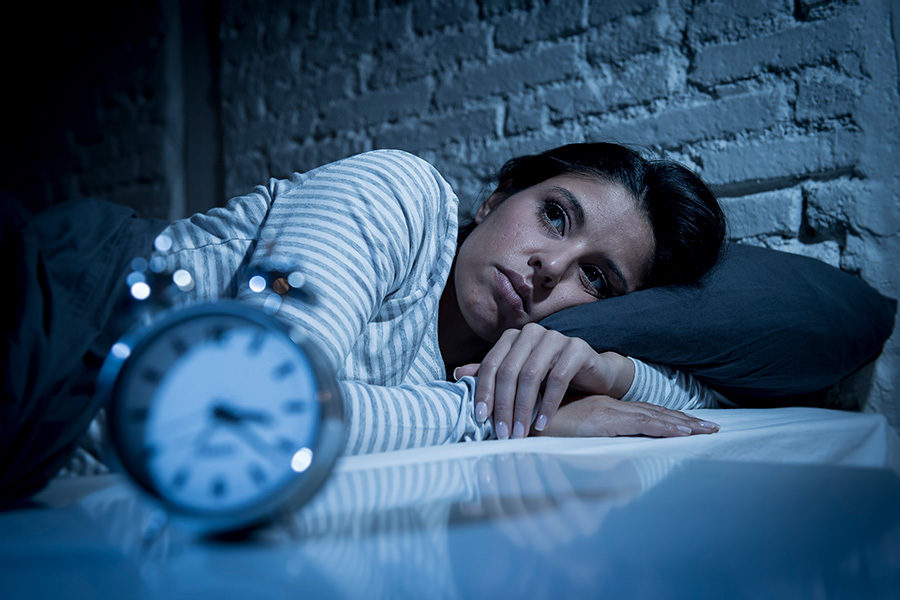
Insomnia has become a widespread concern in our fast-paced, digitally connected world. The ability to access information and entertainment at any time can disrupt our natural sleep patterns, leading to a variety of health issues, particularly regarding mental well-being. This article explores the connection between screen time, insomnia, and mental health, and offers practical strategies for managing screen use before bed.
Understanding Insomnia
Insomnia is characterized by difficulty falling asleep, staying asleep, or waking up too early. It can be transient (short-term), chronic (lasting for at least three months), or intermittent (fluctuating). Common symptoms include fatigue, irritability, and difficulty concentrating. Over time, insomnia can contribute to more severe mental health conditions such as anxiety and depression.
The Digital Influence
The rise of smartphones, tablets, and laptops has profoundly altered how we engage with the world. While technology offers countless benefits, it can also lead to increased screen time, particularly in the evening. The blue light emitted from screens interferes with the production of melatonin, a hormone crucial for regulating sleep. As a result, excessive screen time can delay sleep onset, reduce sleep quality, and exacerbate insomnia symptoms.
The Link Between Insomnia and Mental Health
The relationship between insomnia and mental health is bidirectional. On one hand, insomnia can contribute to various mental health disorders; on the other hand, conditions such as anxiety and depression can make it more difficult to sleep. Research indicates that individuals with chronic insomnia are at a higher risk of developing anxiety disorders and depression. Sleep disturbances can lead to cognitive impairments, emotional dysregulation, and reduced overall quality of life.
Stress and Screen Time
In today’s digital age, many people use screens as a way to unwind or escape daily stressors. However, engaging with social media, news platforms, or intense video games can increase stress and anxiety levels. The content we consume can impact our mood, often leading to heightened emotions or negative thoughts. Consequently, while screens might provide temporary distraction, they can also keep our minds active, making it harder to transition into a restful state conducive to sleep.
Strategies for Managing Screen Time Before Bed
To mitigate the impact of screen time on sleep, consider implementing the following strategies:
1. Establish a Digital Curfew
Set a specific time each evening to unplug from all electronic devices. Aim for at least 30 to 60 minutes of screen-free time before bed. Use this time to engage in calming activities such as reading a book, practicing mindfulness, or enjoying a warm bath.
2. Create a Relaxing Bedtime Routine
Develop a consistent bedtime routine that signals to your body it’s time to wind down. This could include dimming the lights, meditating, or practicing gentle yoga. Such routines can help establish a more peaceful transition into sleep.
3. Limit Exposure to Blue Light
Consider using blue light filters or “night mode” settings on your devices. These features can reduce blue light exposure, making it easier on your eyes and potentially lessening the impact on melatonin production.
4. Use Technology Wisely
While screens can be detrimental to sleep, they can also be used positively. For instance, meditation apps or soothing music can aid relaxation. Choose content that promotes calmness rather than engagement, such as guided meditations or ambient sounds.
5. Be Mindful of Content Consumption
Pay attention to what you watch or read before bed. Avoid intense news stories or engaging social media debates that may trigger stress or anxiety. Instead, opt for lighter, more positive content that promotes a sense of well-being.
6. Create a Comfortable Sleep Environment
Your sleep environment plays a crucial role in achieving restful sleep. Ensure your bedroom is dark, cool, and quiet. Consider using blackout curtains, earplugs, or white noise machines to create a more conducive sleeping environment.
7. Practice Good Sleep Hygiene
In addition to managing screen time, adopting good sleep hygiene practices can improve your overall sleep quality. This includes maintaining a consistent sleep schedule, avoiding caffeine and heavy meals close to bedtime, and getting regular physical activity during the day.
The Benefits of Quality Sleep
Improving sleep quality has far-reaching benefits for mental health. Restorative sleep enhances cognitive function, emotional regulation, and overall resilience against stress. When we prioritize sleep, we are better equipped to manage the challenges of daily life, making us less susceptible to anxiety and depression.
Seeking Professional Help
If insomnia persists despite implementing these strategies, it may be beneficial to consult a healthcare professional. Cognitive-behavioral therapy for insomnia (CBT-I) is a highly effective treatment that addresses the thoughts and behaviors contributing to sleep difficulties. A mental health professional can also provide support for any underlying mental health conditions.
Conclusion
In an age where screens dominate our daily lives, it’s essential to recognize their potential impact on our sleep and mental health. By understanding the relationship between screen time, insomnia, and mental well-being, we can take proactive steps to foster healthier habits. Implementing a digital curfew, establishing a calming bedtime routine, and being mindful of our content consumption can significantly enhance sleep quality. Prioritizing restorative sleep is not just beneficial for our physical health; it is vital for our mental well-being, resilience, and overall quality of life. By making conscious choices in our digital engagement, we can pave the way for a healthier, more balanced life.




